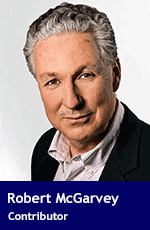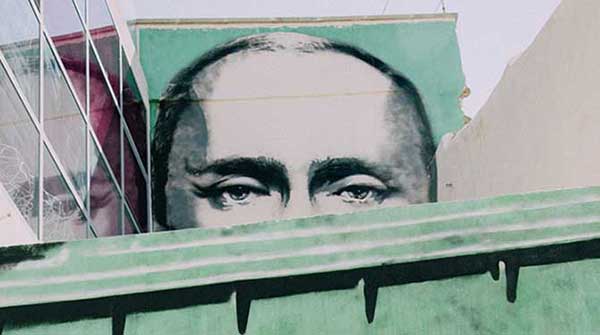 The Story of the Year in 2014 was – hands’ down – Vladimir Putin’s Russia. Not only did Russia’s shocking violence dominate the headlines, but it was also the source of almost every other major event in the latter half of 2014.
The Story of the Year in 2014 was – hands’ down – Vladimir Putin’s Russia. Not only did Russia’s shocking violence dominate the headlines, but it was also the source of almost every other major event in the latter half of 2014.
Think for a moment of the consequences of Putin’s surprise annexation of Crimea. That shocking move was the first violent seizure of territory in Europe since the Second World War. The Russian assault on sovereign Ukraine triggered a grand strategic rethink on both sides of the East/West divide and is the source of an ongoing conflict (war is a better word) in Eastern Ukraine that has been festering for months.
But those direct consequences were just the beginning. The conflict indirectly caused the shooting down of a civilian Malaysian jetliner, scuttled Europe’s growing dependency on Russian energy, launched the first economic sanctions imposed on Russia since the Cold War and, more recently, is widely believed to be a primary cause of the collapse of oil prices globally.
The consequences for Russia domestically have been severe: the collapse of the ruble (Russia’s currency) has caused a major crisis because Russia is not economically self-sufficient as it was during the Soviet era. Its economy is deeply integrated into the global financial and trading system. For instance, most of the debts held by Russian banks and corporations are foreign loans written in Euros or United States dollars, which makes them more crippling every hour.
The paranoia deepens. In a recent press conference Putin laid out his fear and loathing of the West: “Sometimes I wonder, maybe the bear should just sit quietly, munch on berries and honey rather than chasing after piglets, maybe then, they would leave it alone? But no, they wouldn’t, because they will always try to chain it up. And as soon as they chain it up, they will pull out its teeth and claws.”
This chilling little ditty does not bode well for future East-West relations.
Regrettably, the Story of Year in 2014 will also influence events in 2015.
The global economy has not recovered from the troubles of 2008. While global stock markets are trading at record highs, three decades of ‘globalization’ have gutted the industrial core of Western economies with their high labor costs and strict regulatory regimes. What’s left for most is vulnerable (market dependent) sectors such as finance, services and base commodities.
It could all unravel in a heartbeat. The sudden (politically-inspired) collapse of the oil market has sent a shiver through the global economy by proving that in markets ‘what you see is NOT what you get’.
In other words, markets are not as pure as economists suggest. They’re not free, nor are they delivering ‘objective’ price signals. The oil market is a particularly obvious example of the problem; nowhere in the free-market rhetoric of high finance is there room for OPEC, an in-your-face producer cartel. And, as Saudi Arabia has clearly demonstrated, supply/demand does not determine prices. The Kingdom can fix oil prices anywhere it wants.
What’s beginning to sink in for the rest of us is that the same is true for all major markets.
So expect confidence in markets to slide in the coming year and ‘unexpected’ volatility in financial markets to dominate the headlines.
The world will also get a lot more dangerous in 2015. The tougher things become internally for Putin, the more adventurous he will become. Look for distractions, probably Russian interventions in defense of its ethnic minorities in the Baltic states. It’s doubtful that these will be armed invasions – which could trigger a NATO response – but trouble can come in many subterranean forms.
Russia and China have already begun forming a strategic alignment against the West and what they perceive as a biased global system. The coming year will see this anti-Western alliance deepen and challenge the U.S. domination of the WTO and associated institutions.
Ironically, the breakdown of ‘globalization’ with all its structural flaws may be bad news for business but could have a surprising benefit for the West; we may just revive another Cold War relic, a powerful alliance of nations dedicated to improving living conditions for all social classes in an independent Free World.
Robert McGarvey is an economic historian and former managing director of Merlin Consulting, a London, U.K.-based consulting firm. Robert’s most recent book is Futuromics: A Guide to Thriving in Capitalism’s Third Wave.
Robert is a Troy Media contributor. Why aren’t you?
The views, opinions and positions expressed by columnists and contributors are the author’s alone. They do not inherently or expressly reflect the views, opinions and/or positions of our publication.


